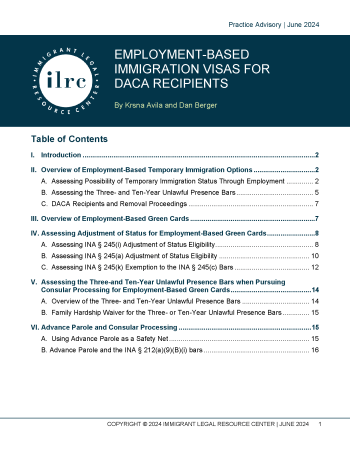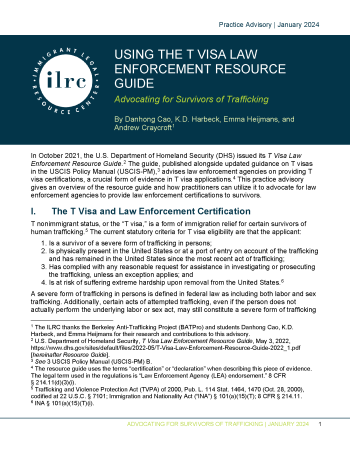
In October 2021, the U.S. Department of Homeland Security (DHS) issued its T Visa Law Enforcement Resource Guide. The guide, published alongside updated guidance on T visas in the USCIS Policy Manual (USCIS-PM), advises law enforcement agencies on providing T visa certifications, a crucial form of evidence in T visa applications. This practice advisory gives an overview of the resource guide and how practitioners can utilize it to advocate for law enforcement agencies to provide law enforcement certifications to survivors.
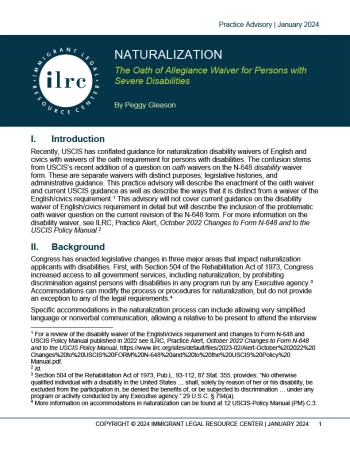
Recently, USCIS has conflated guidance for naturalization disability waivers of English and civics with waivers of the oath requirement for persons with disabilities. The confusion stems from USCIS’s addition of a question on oath waivers on the N-648 disability waiver form. These are separate waivers with distinct purposes, legislative histories, and administrative guidance.
This practice advisory will describe the enactment of the oath waiver and current USCIS guidance as well as describe the ways that it is distinct from a waiver of the English/civics requirement.
This practice advisory will describe the enactment of the oath waiver and current USCIS guidance as well as describe the ways that it is distinct from a waiver of the English/civics requirement.
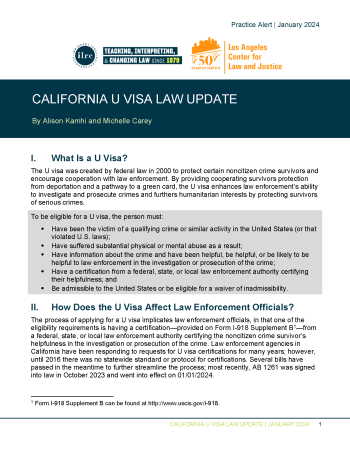
Law enforcement agencies in California have been responding to requests for U visa certifications for many years to allow immigrant survivors of crime and their family members to apply for U nonimmigrant status. However, until 2016 there was no statewide standard or protocol for certifications. Several bills have passed in the meantime to further streamline the process. Most recently, AB 1261 was signed into law in October 2023 and went into effect on 01/01/2024. The Immigrant Legal Resource Center and the Los Angeles Center for Law and Justice wrote this advisory to summarize California state laws on U visa certifications, including the newest provisions.
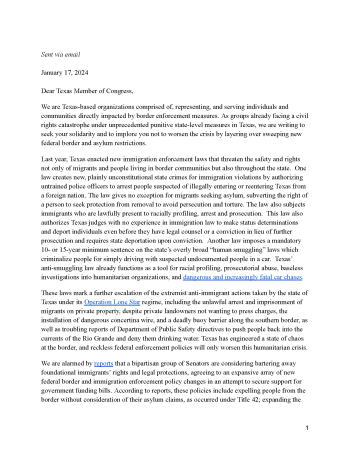
Texas-based organizations comprised of, representing, and serving individuals and communities directly impacted by border enforcement measures write to Texas Members of Congress to seek solidarity and to implore not to worsen the crisis by layering over sweeping new federal border and asylum restrictions. The organizational letter highlights how these changes would have disastrous consequences not only for migrants but for Texas communities, who are presently living under the oppressive and unconstitutional Operation Lone Star.
